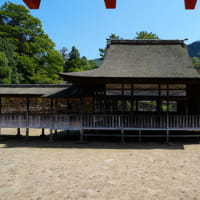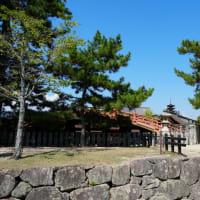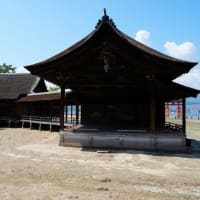Many passages in this month's Sound Argument, the monthly magazine, that I have not read.
This morning, when I was reading the serial (long) article by Dr. Sukehiro Hirakawa, Professor Emeritus of the University of Tokyo, there was a part that made me think that this is today's China itself.
In the last part of his notes, which he summarized and published, there was a part that proved that I had hit the bull's eye.
Mr. Hirakawa's article is a must-read not only for the people of Japan but also for people worldwide.
Historical interpretation of compatibilities and collusion with coercion
Why did they so willingly obey and comport with their rulers?
Before and during the war, the Japanese people stood on their shoulders and talked tough.
There was a strong call for Japan to be the best in the world, but in military schools, that kind of Mental toughness is flawless or unmatched in any other country, and it became a motto and a belief in Chinese words like country.
A self-centered worldview devoid of realism is a kind of delusion. Japan misjudged its strength in the world and suffered a defeat.
Soho Tokutomi Ioichiro also submitted on March 18, 1947, in an affidavit for the Tokyo trial, which was rejected in its entirety. The Japanese have a false sense of self.
Today, if we blame the Japanese people, we should misjudge the Chinese, the U.S., and British nations, the Soviet Union, the Germans, and the Russians. He misjudged Italy, and especially Japan, most often.
Sun Tzu's so-called ignorance of the other party and ignorance of oneself led to the present situation, which is a well-deserved punishment for a Japanese...Note 6
He stated.
But after the war, because of the loss of self-confidence after the war, many Japanese were unable to place the war, which ended in defeat, in the world history of their own judgment. Many of them abandoned their own judgments and were at the mercy of their new superiors, the General Headquarters of the Occupation Forces (GHQ).
Both before and after the war, the Japanese were unable to position themselves in the world properly.
In that case, strange collusion occurred.
The Allied condemnation of the Japanese empire as evil coincided with the condemnation of left-wing Japan as an imperialist state.
That is why Japan's Greater East Asia War was recognized as an aggression war in the Asia-Pacific region. It came to be described as such in Japanese history textbooks.
Who on earth in Japan thought of this English expression 'Greater East Asia War'?
I was talking with Ben-Ami Shillony, an Israeli scholar of Japanese studies, about the impression this expression gave.
And he pointed out that the use of adjectives like "Greater" and "Greater" in a comparative sense gave the wrong impression that the Japanese empire was going to expand its sphere of influence more and more.
This paper continues.
最新の画像[もっと見る]
-
 These are the top 10 real-time search numbers as of 23:00 on 2024/9/17.
3時間前
These are the top 10 real-time search numbers as of 23:00 on 2024/9/17.
3時間前
-
 Repost!China's prosperity has blossomed on Japan's stupidity. We've had enough of China
7時間前
Repost!China's prosperity has blossomed on Japan's stupidity. We've had enough of China
7時間前
-
 Sądzę, że chodzi o globalistów, tak zwane głębokie państwo, którzy spotykają się w Davos.
10時間前
Sądzę, że chodzi o globalistów, tak zwane głębokie państwo, którzy spotykają się w Davos.
10時間前
-
 Luulen, että se tarkoittaa globalisteja, niin kutsuttua syvää valtiota, jotka kokoontuvat Davosiin.
10時間前
Luulen, että se tarkoittaa globalisteja, niin kutsuttua syvää valtiota, jotka kokoontuvat Davosiin.
10時間前
-
 Jeg antar at det mener globalistene, den såkalte deep state, som samles i Davos.
10時間前
Jeg antar at det mener globalistene, den såkalte deep state, som samles i Davos.
10時間前
-
 Jag antar att det menar globalisterna, den så kallade djupa staten, som samlas i Davos.
10時間前
Jag antar att det menar globalisterna, den så kallade djupa staten, som samlas i Davos.
10時間前
-
 我想這指的是聚集在達沃斯的全球主義者,也就是所謂的深層國家。
10時間前
我想這指的是聚集在達沃斯的全球主義者,也就是所謂的深層國家。
10時間前
-
 我猜这指的是聚集在达沃斯的全球主义者,即所谓的深层国家。
10時間前
我猜这指的是聚集在达沃斯的全球主义者,即所谓的深层国家。
10時間前
-
 다보스에 모이는 소위 딥 스테이트, 즉 글로벌리스트들을 뜻하는 거겠죠.
10時間前
다보스에 모이는 소위 딥 스테이트, 즉 글로벌리스트들을 뜻하는 거겠죠.
10時間前
-
 Penso que significa os globalistas, o chamado estado profundo, que se reúnem em Davos.
10時間前
Penso que significa os globalistas, o chamado estado profundo, que se reúnem em Davos.
10時間前









